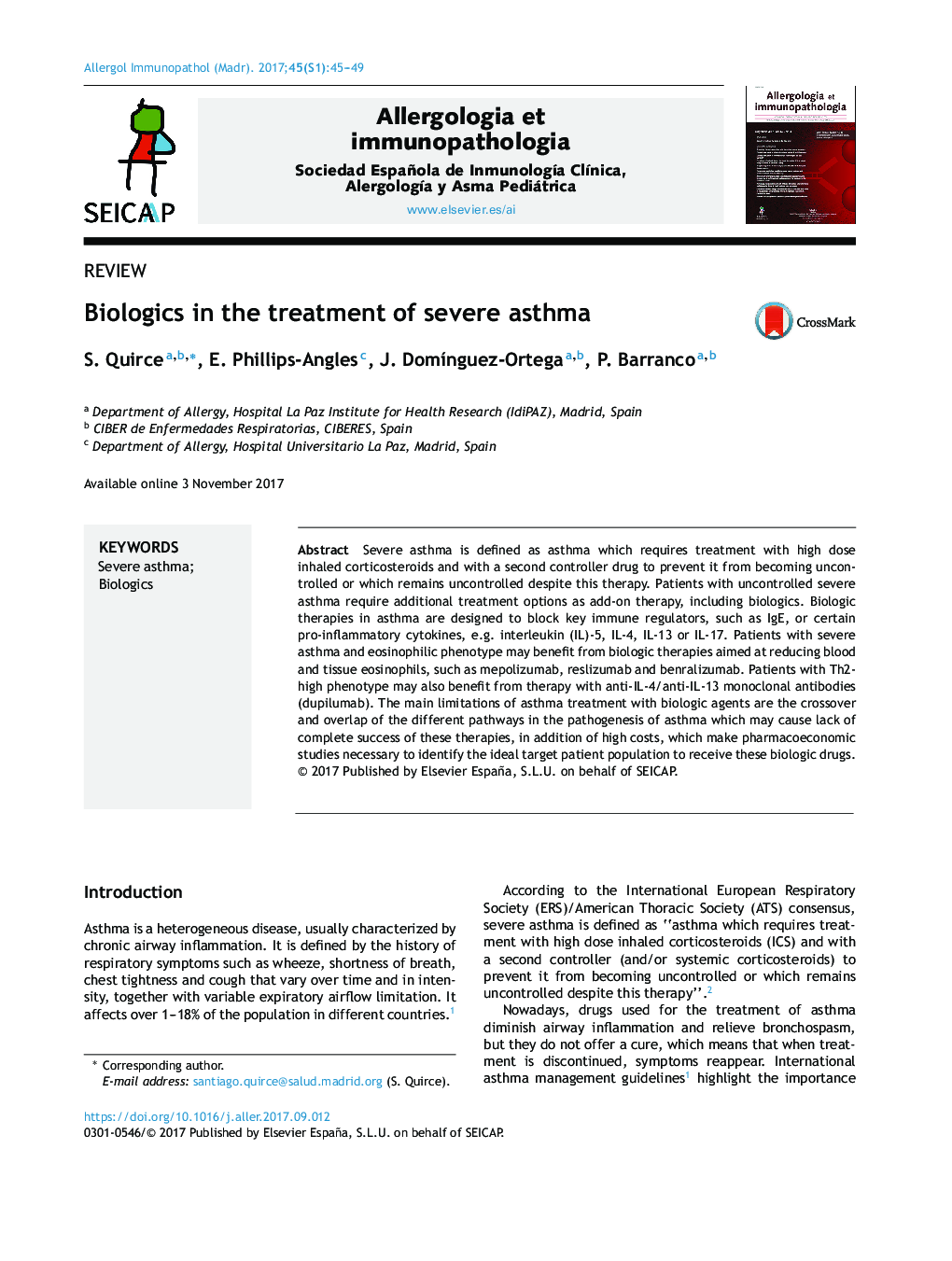| Article ID | Journal | Published Year | Pages | File Type |
|---|---|---|---|---|
| 8736140 | Allergologia et Immunopathologia | 2017 | 5 Pages |
Abstract
Severe asthma is defined as asthma which requires treatment with high dose inhaled corticosteroids and with a second controller drug to prevent it from becoming uncontrolled or which remains uncontrolled despite this therapy. Patients with uncontrolled severe asthma require additional treatment options as add-on therapy, including biologics. Biologic therapies in asthma are designed to block key immune regulators, such as IgE, or certain pro-inflammatory cytokines, e.g. interleukin (IL)-5, IL-4, IL-13 or IL-17. Patients with severe asthma and eosinophilic phenotype may benefit from biologic therapies aimed at reducing blood and tissue eosinophils, such as mepolizumab, reslizumab and benralizumab. Patients with Th2-high phenotype may also benefit from therapy with anti-IL-4/anti-IL-13 monoclonal antibodies (dupilumab). The main limitations of asthma treatment with biologic agents are the crossover and overlap of the different pathways in the pathogenesis of asthma which may cause lack of complete success of these therapies, in addition of high costs, which make pharmacoeconomic studies necessary to identify the ideal target patient population to receive these biologic drugs.
Keywords
Related Topics
Life Sciences
Immunology and Microbiology
Immunology
Authors
S. Quirce, E. Phillips-Angles, J. DomÃnguez-Ortega, P. Barranco,
